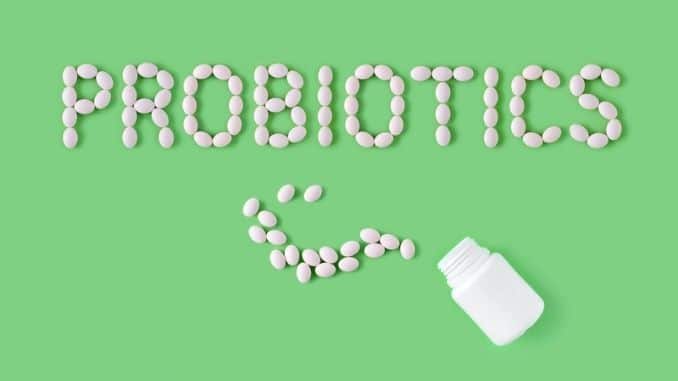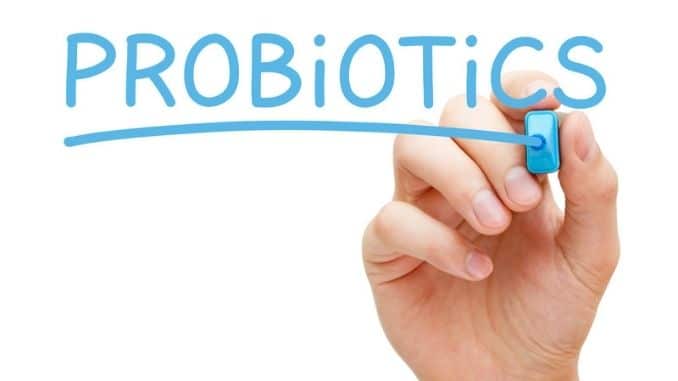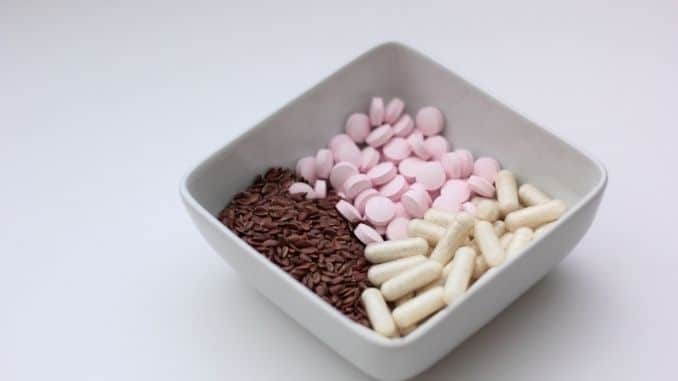Probiotics are all the rage right now in the wellness industry. You have probably seen certain food ads that emphasize their probiotic content. As well, you may have seen supplements on the drug store shelves and wondered if they would help ease your digestive woes or improve your mood.
Here’s what you need to know to make a wise decision about probiotics.
What Are Probiotics?
Inside your gut are millions of microorganisms—bacteria, viruses, fungi, and other life forms that together are called the “microbiome.” This may sound rather distasteful at first, as we tend to think of bacteria as dangerous and potentially damaging to our health. But it’s not quite that simple.
It’s true that some bacteria, viruses, and other microorganisms are dangerous and can cause disease, but others are beneficial to human health. Scientists have learned over the past several decades that there is a balance of the two in the digestive tract, and maintaining that balance has a lot to do with our overall well-being.
The key is to maintain more of the ‘good guys’ than the ‘bad guys’. A healthy microbiome has more “friendly” bacteria than unfriendly types and plays a key role in proper digestion, metabolism, body weight, and immune function, as well as brain function and even mood.
Probiotics are friendly bacteria that help maintain a healthy microbiome. Science suggests that getting enough of them in our diets may help promote good health, though exactly how much we need and what kind remains up for debate.
What are the Health Benefits of Probiotics?
The research on probiotics is still fairly new, so scientists don’t yet have all the answers as to which ones work best for which health conditions, or how much we need per day to enjoy optimal health. Early results are promising, however, and show that maintaining a thriving microbiome may be critical to avoiding disease.
1. Probiotics may help maintain a healthy digestive system.
This is the most obvious benefit of probiotics, as they help replenish the friendly bacteria in the gut. This is thought to correct an imbalance that may have been caused by taking antibiotics, suffering an illness, or eating a poor diet—all of which can deplete the good bacteria and cause digestive problems.
2. Probiotics can help treat and prevent diarrhea.
If you have to take antibiotics to treat an infection, you may suffer from antibiotic-associated diarrhea. Though antibiotics help kill off the bad bacteria that cause infections, they cannot discriminate between the good guys and the bad guys, so they tend to kill off the good bacteria in your gut at well.
Research has shown that using probiotics can help reduce the risk of antibiotic-associated diarrhea—by up to 42 percent in one study.
Probiotics may also help prevent traveler’s diarrhea and diarrhea related to other causes as well.
3. Probiotics may boost immune function.
The gut microbiota has a large effect on the immune system, and some research has suggested that probiotics may help stimulate the immune system to function optimally. Several animal and human studies have found that Lactobacillus and Bifidobacterium strains (those typically found in yogurt) promote immune cell activity, helping to prevent infections.
In a recent 2019 study, researchers concluded that probiotic bacteria had a significant effect on the immune system by activating multiple immune mechanisms.
4. Probiotics can help protect against allergies.
There is some evidence that the consumption of probiotics early in life may help protect against allergies in adulthood. Food allergies and atopic dermatitis seem to benefit the most, with early probiotics making these conditions less likely.
Probiotics may also help reduce allergy symptoms once the allergy has taken hold. In a 2008 study, for instance, researchers found that infants at risk for allergic disease who received probiotic supplements had a reduced prevalence of eczema compared to those who didn’t receive the supplement.
5. Probiotics may boost mood.
If you’ve ever had a gut feeling or felt your stomach drop, you understand the connection that seems to exist between emotions and the gut.
Scientists know that the gut and brain are intimately connected through the enteric nervous system, which consists of billions of nerve cells sending messages back and forth between the two.
They have also found that the health of the microbiome can significantly affect mental health. If your microbiome is being taken over by the unfriendly bacteria, for example, you may be more at risk for depression or other mental health issues.
The opposite may also be true—getting more probiotics might help boost mood. In a review of 15 human studies, scientists discovered that supplementing with probiotics for 1-2 months helped improve anxiety, depression, obsessive-compulsive disorder (OCD), and autism.
6. Probiotics may help protect cardiovascular health.
Some studies have found that probiotics can help lower LDL “bad” cholesterol and maintain healthy blood pressure—both of which can help improve cardiovascular health.
The effects are modest. In a review of five studies, for instance, researchers found that eating probiotic-rich yogurt for 2-8 weeks reduced total cholesterol by 4 percent and LDL cholesterol by 5 percent. Other studies have suggested probiotics may also help increase HDL “good” cholesterol.
As for high blood pressure, again, the results were modest. In a review of 9 studies, probiotic supplements helped reduce blood pressure by about 2-4 mm Hg.
7. Probiotics may help ease the symptoms of digestive disorders.
If you suffer from inflammatory bowel diseases like Crohn’s disease or ulcerative colitis—or if you have irritable bowel syndrome (IBS)—getting more probiotics in your diet may help, though we need more studies to be sure.
Certain types of probiotics have helped improve symptoms of ulcerative colitis in some people, with one study showing that the E. coli Nissle strain was as effective as some medications in helping patients maintain remission.
Early research suggests that probiotics may have promise in treating IBS as well. In a 2010 review of the scientific literature, researchers found that probiotics were statistically and significantly better than a placebo at improving symptoms of IBS.
Signs You May Need More Probiotics
How can you tell if your microbiome needs more friendly bacteria?
Your best approach is to observe yourself and your health. Look for the following signs that your gut may be crying out for help from probiotics:
- Upset stomach, consistent bloating, gas, constipation, and diarrhea.
- Increase in skin conditions like acne, rashes, hives, or eczema.
- Rise in mood swings or stress and anxiety.
- Increase in infections like the cold and flu.
- Recurrent yeast infections (yeast flourish in the absence of good bacteria).
- Frequent migraines (some studies suggest gut imbalances can be associated with migraines).
- Increase in allergic reactions.
- Recurrent urinary tract infections.
- Consistent sleep disturbances.
There are companies out there that will analyze your gut microbiome for a fee after you send in a fecal sample. The results indicate what species of bacteria are present in your microbiome and how diverse your overall microbiome is compared to others.
Called “gut flora testing” or “microbiome testing,” this process is scientifically sound and the results can be interesting, but you may not be able to gain much from them. Scientists still don’t know what an optimally healthy microbiome looks like, so it’s not like you can get a passing or failing grade on your test.
You can always show the results to your doctor to determine what steps (if any) you need to take to improve your gut health, but such testing isn’t necessary and may just leave you feeling more confused.
What Types of Foods Contain Probiotics?
Probiotics are found in fermented foods like yogurt, kefir, tempeh, kimchi, miso, kombucha, buttermilk, pickles, natto, and some unpasteurized cheeses, including Gouda and mozzarella. To receive the health benefits, you must consume so-called “live” cultures of probiotics. Heat and food processing methods like canning can kill friendly bacteria and make probiotics inactive.
Probiotic supplements are also available and typically contain a variety of different types of friendly bacteria strains. Some of these have been well studied and some haven’t, and it’s unclear which are best for maintaining digestive health, for example, or which may be best at boosting immune function.
Dosages vary by product because there is no standardized dose, though products for adults typically range from 5-10 billion colony-forming units per day. Whether probiotics survive the digestive process is also unclear, as the quality of the supplements varies from manufacturer to manufacturer. In general, doctors recommend that you get your probiotics from food unless your doctor suggests otherwise.
Probiotics shouldn't be confused with prebiotics, which are special plant fibers that serve as food for probiotics. The two work together to support a healthy microbiome, but they are different. Good food sources of prebiotics include onions, garlic, bananas, whole oats, apples, chicory root, dandelion greens, leeks asparagus, cocoa, flaxseeds, and wheat bran.
Which Probiotic Supplement is Best?
If you do decide to try a probiotic supplement, look for the following to be sure you’re getting a quality product:
- Multiple strains: The supplement should contain a diverse combination of strains. The most well-known are Lactobacillus and Bifidobacterium, but a quality product will have more, potentially containing thermophilus and Saccharomyces boulardii, among others.
- Number: A good general recommendation is to choose products with at least 1 billion colony-forming units. A higher number than that isn’t necessarily indicative of a better product.
- Fillers: Check the ingredient list. Those products that contain fillers like lactose or cornstarch could cause bloating and gas in sensitive individuals.
- Company: Check the company’s website to see what information they provide on their product. Look for the types of strains they use and the research behind them.
- Third-party testing: Manufacturers that submit their products to independent labs for analysis are usually more trustworthy manufacturers. Third-party testing helps show that the supplement contains the ingredients it says it contains, and may also show how well the product is absorbed.
- Store carefully: The product should contain information on how the supplement should be stored to preserve the probiotics. These microorganisms are alive and can die easily. Some need to be refrigerated. The product should also have an expiration date. Be sure to use it before it expires.
- Be ready for side effects: Probiotics can cause bloating and gas as well as changes in your stool patterns at first. These are signs that the product is working. Give it a couple of weeks to see if the side effects ease. If not, try another product.
- Be patient: If one product doesn’t seem to be working, try another. Try each one for 2-3 weeks to see if you see any benefits.

As always, if you have concerns regarding your health and diet, first speak with your physician to determine which, if any, supplements are best for you. It is always best to absorb any necessary vitamins and nutrients from your diet, so try to add some probiotic-rich foods like yogurt or sauerkraut to your meals. If you do choose to supplement, read labels closely to make sure you are choosing the best probiotic possible.
Learn the best foods for slimming and healing your body. Click here for more information.











